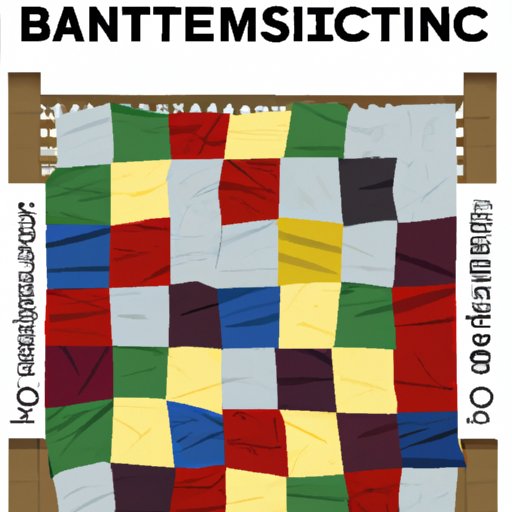Introduction
A blanket statement is a phrase or opinion that is overly broad, sweeping, and often untrue. It is used to make a generalization about a group of people or a concept without considering individual characteristics or circumstances. The purpose of this article is to explain the definition of a blanket statement, analyze its impact, discuss how to avoid making one, investigate the reasons behind them, compare them to other types of generalizations, and offer tips for responding to them.

Explaining the Definition of a Blanket Statement
At its core, a blanket statement is an oversimplified opinion or conclusion that is applied to a group of people or a concept without taking into account individual differences or circumstances. For example, saying “all teenagers are irresponsible” is a blanket statement because it does not consider the individual traits and behaviors of each person in the group.
Examples of common blanket statements include: “all politicians are corrupt”, “all men are chauvinistic”, and “all women are emotional”. These statements are usually based on false stereotypes and can be damaging to relationships because they ignore individual experiences and differences.

Analyzing the Impact of Blanket Statements
Blanket statements can have a negative impact on communication and relationships. They can be hurtful and offensive, creating feelings of alienation or anger in the person being generalized. They can also be damaging to relationships by making the speaker appear judgemental or closed-minded.
In addition, blanket statements can lead to misunderstandings and miscommunication. When someone makes a sweeping statement without considering individual characteristics or circumstances, they may not be accurately representing the situation. This can lead to confusion and frustration as the conversation progresses.

Discussing How to Avoid Making Blanket Statements
The best way to avoid making blanket statements is to identify and challenge your own assumptions. Before you make a statement, take a moment to consider if it is true for every single person or situation in the group. If not, then it is likely a blanket statement and should be avoided.
It is also important to listen carefully to others before speaking. This will help you to understand the individual perspectives of the people you are talking to and ensure that any statements you make are accurate and specific.
Investigating the Reasons Behind Blanket Statements
There are several potential reasons why someone might make a blanket statement. One reason is unconscious bias, which is when we make assumptions about a group of people without realizing it. Unconscious bias can lead us to make sweeping generalizations without considering individual differences.
Another reason is fear of conflict. People sometimes make blanket statements in an attempt to avoid disagreement or difficult conversations. By making a statement that applies to everyone, they can avoid having to defend their opinion or engage in a debate.
Comparing Blanket Statements to Other Types of Generalizations
It is important to note that there is a difference between blanket statements and other types of generalizations. While blanket statements are overly broad and often untrue, other types of generalizations can be more accurate and useful. For example, saying “most teenagers are responsible” is not a blanket statement because it acknowledges individual differences while still making a valid point.
The implications of this difference are significant. Blanket statements can be damaging to relationships and communication, while other types of generalizations can actually be helpful in understanding and relating to others.
Offering Tips for Responding to Blanket Statements
If someone makes a blanket statement, it is important to respond in a constructive way. One tip is to consider the source. Ask yourself if the person making the statement is someone who tends to make sweeping generalizations, or if they are usually thoughtful and considerate in their speech. This can help you decide how to best respond to the statement.
Another tip is to ask questions. Instead of getting angry or arguing with the person, try asking them to clarify their statement. This can help you better understand where they are coming from and allow you to address any misconceptions they may have.
Finally, try making suggestions instead of attacking the person’s opinion. Offer specific examples or ideas that can help to illustrate your point of view in a constructive way.
Conclusion
In conclusion, a blanket statement is an overly broad and often untrue opinion or conclusion that is applied to a group of people or a concept without taking into account individual differences or circumstances. They can have a negative impact on communication and relationships, and it is important to be aware of the reasons behind them in order to avoid making them. There is a difference between blanket statements and other types of generalizations, and it is important to consider the source and ask questions when responding to them. By understanding the definition and implications of blanket statements, we can work towards more effective communication and healthier relationships.


